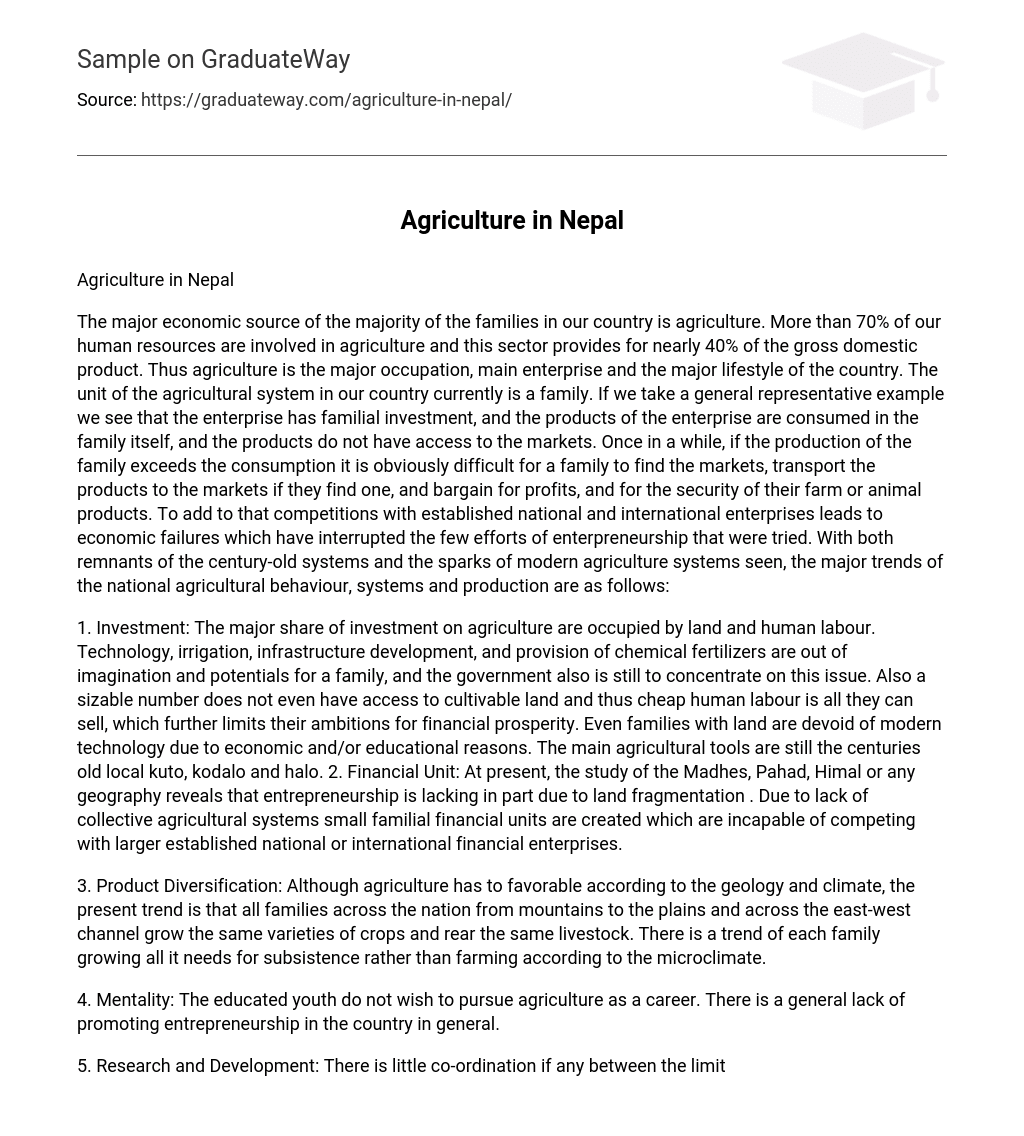The major economic source of the majority of the families in our country is agriculture. More than 70% of our human resources are involved in agriculture and this sector provides for nearly 40% of the gross domestic product. Thus agriculture is the major occupation, main enterprise and the major lifestyle of the country. The unit of the agricultural system in our country currently is a family. If we take a general representative example we see that the enterprise has familial investment, and the products of the enterprise are consumed in the family itself, and the products do not have access to the markets. Once in a while, if the production of the family exceeds the consumption it is obviously difficult for a family to find the markets, transport the products to the markets if they find one, and bargain for profits, and for the security of their farm or animal products. To add to that competitions with established national and international enterprises leads to economic failures which have interrupted the few efforts of enterpreneurship that were tried. With both remnants of the century-old systems and the sparks of modern agriculture systems seen, the major trends of the national agricultural behaviour, systems and production are as follows:
1. Investment: The major share of investment on agriculture are occupied by land and human labour. Technology, irrigation, infrastructure development, and provision of chemical fertilizers are out of imagination and potentials for a family, and the government also is still to concentrate on this issue. Also a sizable number does not even have access to cultivable land and thus cheap human labour is all they can sell, which further limits their ambitions for financial prosperity. Even families with land are devoid of modern technology due to economic and/or educational reasons. The main agricultural tools are still the centuries old local kuto, kodalo and halo. 2. Financial Unit: At present, the study of the Madhes, Pahad, Himal or any geography reveals that entrepreneurship is lacking in part due to land fragmentation . Due to lack of collective agricultural systems small familial financial units are created which are incapable of competing with larger established national or international financial enterprises.
3. Product Diversification: Although agriculture has to favorable according to the geology and climate, the present trend is that all families across the nation from mountains to the plains and across the east-west channel grow the same varieties of crops and rear the same livestock. There is a trend of each family growing all it needs for subsistence rather than farming according to the microclimate.
4. Mentality: The educated youth do not wish to pursue agriculture as a career. There is a general lack of promoting entrepreneurship in the country in general.
5. Research and Development: There is little co-ordination if any between the limited Agricultural School and Research Centres. Farmers can only regret when their whole harvest is destroyed by pests. Lack of proper testing and pretesting of hybrids continue to ruin the investments of the poor farmers. Furthermore, it has been a challenge to retain the agroscientists and technicians in the country as seen in other technical sectors.
6. Support Systems and Infrastructure: There is a poor state of credit provision to the farmers. The corporate banks are investing well below the policy requirement of 10% in agriculture. Also the interest on agricultural loans is very high compared to real state and automobile loans. There is virtually no provision of insurance and securitization on the agriculture sector. The lack of supporting infrastructure needs no description, there are no adequate rural roads, storage facilities and cold-stores are a rarity and demand for the required electricity facilities is unmet.
The focus of social and economic life of our country, the agriculture sector is still family-based, subsistent and non-professional. Therefore it has to be replaced to develop a technical, collective and entrepreneurial system of agriculture.





